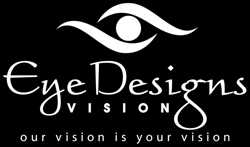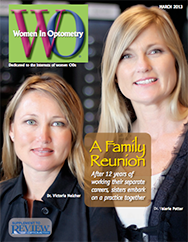Children’s Vision
Vision is arguably the most important of the five senses; it plays a crucial role throughout childhood and beyond. Yet many parents don’t understand how vision helps their children develop appropriately. Use these articles to proactively care for your child’s eyes, spot potential trouble, and maximize the opportunity for crisp, convenient and healthy vision.
Contact Lenses
Today there are more convenient and healthy contact lens choices than ever before. Whatever your vision challenge, it can probably be met with an array of specialty contact lenses for individual vision needs.
Sunglasses
Whether or not you require vision correction, sunglasses can add an element of comfort and enhanced performance to your activities, while helping you look great.
Eye Exams
Seeing clearly is just one part of your overall eye health. It’s important to have regular eye exams whether or not you wear glasses or contacts, and even if your vision is sharp. The articles below explain what problems can be spotted with an eye exam, what’s involved in a comprehensive exam, and special considerations for kids and contacts.
Vision Surgery
Tired of wearing glasses or contact lenses? Today, several surgical methods can correct your eyesight and, in most cases, give you the freedom of seeing well without corrective lenses.
Eyeglasses
The struggle between fashion and function is officially declared a tie! Never before have eyeglass frames been offered in so many stylish choices. Yet, you’ll be amazed at how many options are at your fingertips to help you see well, and protect your vision.
Conditions
Eye problems can range from mild to severe; some are chronic, while others may resolve on their own, never to appear again. The articles below will give you a basic understanding of some of these problems and their implications. The cardinal rule is if your eyes don’t look good, feel good or see well, you should visit your doctor.
Vision Over 40
If you are among the 85 million Baby Boomers in the United States and Canada (born between 1946 and 1964), you’ve probably noticed your eyes have changed. Most notably, presbyopia – the normal, age-related loss of near focusing ability – usually becomes a problem in our 40’s, requiring new vision correction solutions. Learn about measures you can take to keep seeing clearly for years to come.
Vision Over 60
Just as our physical strength decreases with age, our eyes also exhibit an age-related decline in performance – particularly as we reach our 60’s and beyond. Some age-related eye changes are perfectly normal, but others may signal a disease process. It’s important to recognize signs and symptoms, and perhaps even more important to mitigate the effects of aging with some simple and common-sense strategies.
Sports Vision
Sports eyewear can give you the performance edge you’re seeking for just about any sport. But make sure you get the eye protection you need as well. And after you’re fit for the right eyewear, you might want to take your game up a notch with the same kind of vision training used by professional athletes.
Vision Insurance
It’s not true “insurance” that protects you against unexpected or overwhelming financial obligations. Vision insurance, on the other hand, is a wellness benefit designed to provide routine eye care, prescription eyewear and other vision-related services at a reduced cost. Learn about types of vision plans, and how they work.
Low Vision
Low vision is the term used to describe reduced eyesight that cannot be fully corrected with eyeglasses, contact lenses or eye surgery. The primary causes of low vision are eye diseases, but low vision also can be inherited or caused by an eye or brain injury.
Optometrist or Ophthalmologist or Optician?
An optician is not an eye doctor, but in some states they must complete training and be licensed. Most opticians sell and fit eyeglasses, sunglasses, and specialty eyewear that are made to an optometrist’s or ophthalmologist’s prescription. In some states opticians can become certified, after special training, to fit contact lenses.
An ophthalmologist (MD) is a medical or osteopathic doctor who specializes in the eye. They perform eye exams, diagnose and treat disease, prescribe medication, and perform surgery. Most opthalmologist specializes in one segment of the eye or eye diseases. Ophthalmologists complete four years of medical school, one year of internship, and a minimum of three years of residency in ophthalmology.
An optometrist (OD) is an eye doctor who examines eyes for both vision and health problems, and corrects refractive error by prescribing eyeglasses and contact lenses. Optometrists diagnose and treat eye problems and diseases, and prescribe many ophthalmic medications and may participate in your pre- and postoperative care if you have eye surgery. Some optometrists provide low vision rehabilitation and vision therapy. An optometrist must complete four years of college, and a four years of post-graduate optometry school, and some complete a residency with advanced study in a specific area of eye care.
ChromaGen
A non-invasive treatment for dyslexia symptoms has been found in ChromaGen lenses. These are lenses (filters) that equalize and regulate the signals from the eye to the brain which take away the symptoms that make reading difficult. Our patients have seen an incredible difference affecting not just their reading but their whole life!

